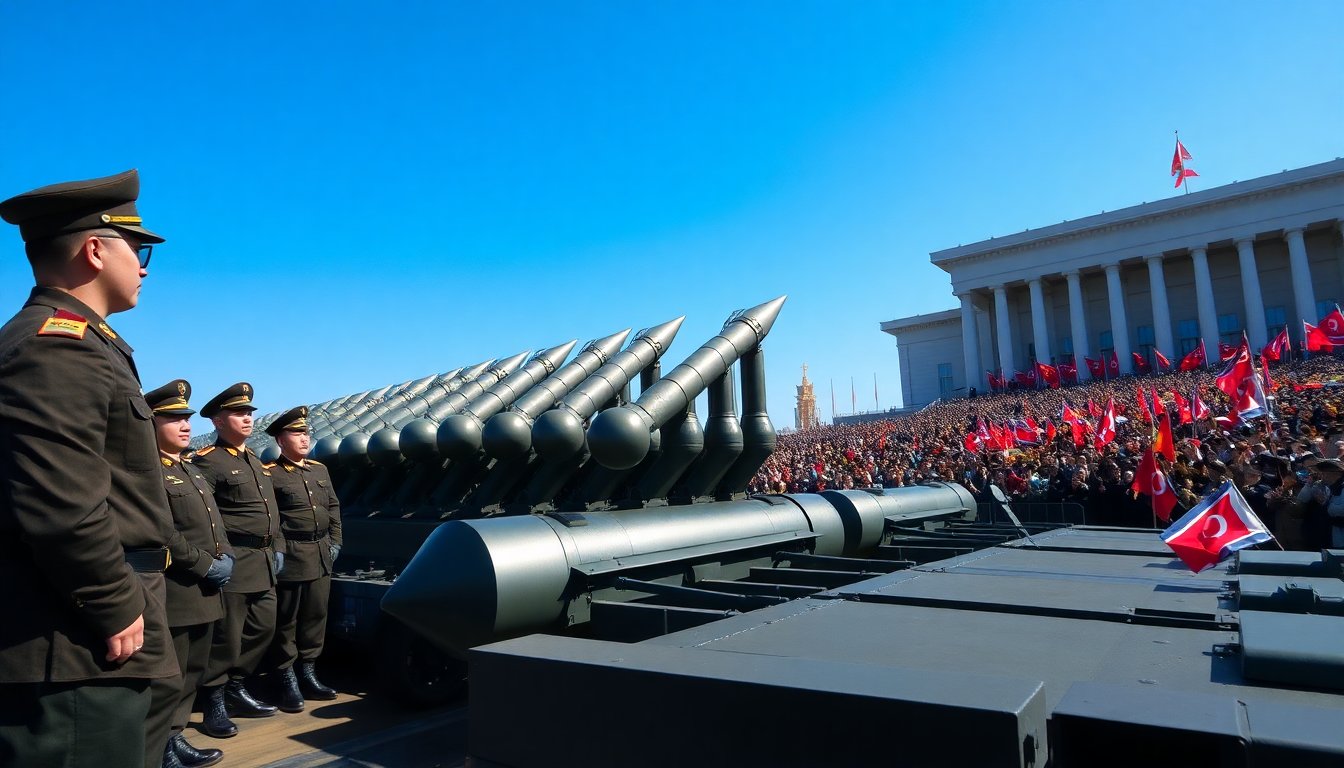Table of Contents
North Korea recently showcased its military capabilities with a grand parade in Pyongyang, highlighting its growing nuclear arsenal. The event featured high-profile guests from China and Russia, emphasizing the international dimension of the occasion. Kim Jong Un used this platform to convey his nation’s strength, reflecting both domestic unity and a strategic message aimed at Western nations.
Significance of the military parade
The military parade serves as a crucial element of North Korean propaganda. It goes beyond a ceremonial event; it aims to showcase the nation’s latest weaponry, thereby enhancing national pride and instilling fear among adversaries. The presence of representatives from China and Russia strengthens the narrative of shared political interests, further isolating Western powers. This event is not just a display of military hardware but a calculated strategy to highlight North Korea’s resilience against external pressures.
Showcase of new weaponry
During a recent military parade, North Korea displayed a range of advanced weapon systems, indicating notable progress in military technology. Among the showcased items were ballistic missiles capable of targeting distant locations, as well as various defense systems intended to neutralize potential threats. This exhibition forms part of an ongoing initiative by the North Korean government to enhance its military capabilities, demonstrating a commitment to preserving a strategic advantage. The attendance of officials from China and Russia underscores the geopolitical ramifications of these advancements, as both countries aim to counter Western influence.
Geopolitical implications
The recent display of military strength by North Korea raises significant questions about the future of international relations in the region. North Korea’s alliance with China and Russia indicates a potential shift towards a more unified front against Western influence. This collaboration may prompt Western nations to reevaluate their defense strategies, necessitating a reassessment of their approach towards North Korea and its allies.
International reactions
Responses from the global community have varied significantly. Some nations have expressed stark condemnation, while others have opted for cautious engagement. The United States has reaffirmed its commitment to denuclearization talks but remains skeptical regarding North Korea’s intentions. Conversely, China and Russia have stressed the importance of dialogue and mutual respect. They advocate for a diplomatic resolution rather than escalating military tensions. This divergence in approaches highlights the complexity of the situation as countries navigate their interests against a backdrop of increasing militarization.
The implications of North Korea’s military ambitions
North Korea’s military ambitions have significant implications that extend beyond its borders. The recent military parade in Pyongyang was not merely a display of power, but a strategic move by the regime to consolidate its domestic authority and influence the global political landscape. By showcasing its military advancements, North Korea sends a clear message to both domestic and international audiences about its capabilities and intentions.
The international response
The international community must remain vigilant in the face of these developments. Observers note that the dynamics at play could reshape alliances and alter the balance of power within the region. Countries neighboring North Korea, as well as global powers, are likely to reassess their strategies in response to the regime’s provocations.
The ongoing tensions
The military parade serves as a stark reminder of the ongoing tensions and the complex web of international relations surrounding North Korea. As the regime continues to assert its position on the global stage, the actions taken by its leaders and the responses from other nations will be crucial in determining the future trajectory of peace and conflict.


